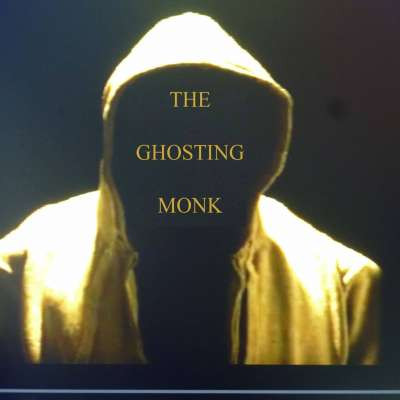On Chasing Money Instead Of Women - MGTOW
In this video I present the historical backdrop that has informed modern thinking in relation to money, economics, usury and so on.
Patreon
https://www.patreon.com/ground....work_for_the_metaphy
Paypal
https://www.paypal.com/cgi-bin..../webscr?cmd=_s-xclic
Script
http://www.gftmom.com/portfoli....o-item/on-chasing-mo
Hey everybody, Marcus here.
There is a trend in MGTOW that seems to encourage pursuit of money as a mechanism to fill the void left behind when a man abandons the pursuit of women. What I want to do in this video is to give a historical backdrop as it pertains to economics, capitalism, usury, and money matters in general. This video is a historical tour that has many moving parts. This video does not defend a normative claim in relation to whether or not one ought chase money. However, I think it will be a valuable source of insights into money issues that has not been expressed in this community. I hope you enjoy it.
How we reflect on the world around us. How we interpret the world around us depends a good part on the categories that are available to us. And those categories come to us in part from cultural traditions that are handed down over time. Concept are like flashlights. They call our attention to some aspect of reality and they leave other aspects of reality in shadows.
Concepts also have their own set of associations or evaluations that they are likely to call up. You can think of an intellectual tradition as a series of interrelated concepts. And as such, intellectual traditions can influence what elements of reality we see and how we evaluate those elements of reality.
To understand the views of modern European and American thinkers about capitalism, we have to keep in mind some older traditions and how they tended to view and evaluate trade, finance, and consumption. We have to keep those in mind because we want to see how more modern European and American intellectuals sometimes took issues with those traditions. Or how they reformulated those traditions under the new conditions of a more commercial society.
And we want to keep those older traditions in mind because they often form the backdrop of concepts, associations and images that many of the readers that these thinkers were writing for would have in their minds.
Two of the main traditions that European and American intellectuals had available to them were very skeptical about commerce, about money making, and about consumption. Those were the traditions of civic republicanism and Christianity. The civic republic tradition began in ancient Greece, was continued in classical Rome, and was revived during the Renaissance in Italy. It was originally formed in Greek city states that were republics. Namely, these city states were self-governing political entities. The problem for such republics and the key problem for the civic republican tradition was how to maintain themselves. How to prevent getting conquered by other city states and how to prevent their republican self-government from degenerating into some form of dictatorial rule.
This subject was explored in the work of Greek philosophy such as in Plato and Aristotle. The civic republican tradition stressed the importance of virtue where an important part of virtue was understood as personal devotion to the republic. Though the pursuit of virtue was not contained to public service, civic virtue was an important element in the pursuit of excellence.
When John F. Kennedy said: “Ask not what your country can do for you. Ask what you can do for your country.” He was tapping into the classical spirit of the civic republican ideal. What you were supposed to do for your country, if you were a citizen, was two things above all. Firstly, you had to be prepared to fight for your city state. Secondly, you had to take a role in governance. You had to devote a good deal of time to public affairs in discussing how the city state should be run.
You had to be prepared to fight for it because these city states were often at war with other city states. In this situation, defeat meant the end of self-governance. The ideal of virtue applied only to citizens. And citizens made up a minority of the population. Only adult males could be citizens. Indeed, as I have said in several videos before, the root of the word virtue, namely, vir, is the Latin for man or male. So, citizenship was only open to adult males and most males in the Greek city states and in the later Roman republic were not citizens. Many of them were slaves or artisans without the status of citizens.
0



 Life_N_Times_of_Shane_T_Hanson
Life_N_Times_of_Shane_T_Hanson

 Better Bachelor
Better Bachelor
 Sandman
Sandman![[MGTOW Essentials] Justice for all ; BTW, Does Not include YOU ---> MGTOW](https://cdn.mgtow.tv/upload/photos/2025/07/M14JU1CGR5mG7Lqc5dSr_01_c974e58f831717ff7d5508dba3085506_image_thumb_high.jpg)
 4_ArchAngel
4_ArchAngel
 jesuinomgtow
jesuinomgtow




 RT
RT
 mrghoster
mrghoster

 Freshfit
Freshfit
 Carioca Exilado
Carioca Exilado
 TheQuartering
TheQuartering
 Alpha Male Lifestyle
Alpha Male Lifestyle
 NerokeFive
NerokeFive

 Gonzo Og
Gonzo Og

Log in to comment